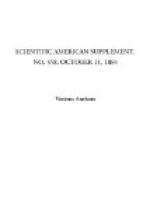The story of Lieut. Greely’s recovery after his rescue from Cape Sabine is given by Passed Assistant Surgeon Edward H. Green, U.S.N, of the relief ship Thetis, in a communication to the Medical Record. The cases of Greely’s six fellow survivors, it is remarked, were very similar to his. The condition of all was so desperate that a delay of two hours in the camp was necessary before they could be removed to the relief vessels. Brandy, milk, and beef essence were administered.
Lieut. Greely’s disease is called by the surgeon asthenia, a diminution of the vital forces. Greely fainted after being carried to the wardroom of the Thetis. When he was brought to, a teaspoonful of minced raw fresh beef was given to him. His clothes were carefully cut off of him, and heavy red flannels, previously warmed, were-substituted. He was excessively enacted, and his body emitted an offensive odor. His skin hung from his limbs in flaps. His face, hands, and scalp were black with a thick crust of soot and dirt. He had not washed himself or changed his clothing for ten months. He had lived a long time at a temperature inside the hut of from five to ten degrees above zero. He was nervous and irritable, at times almost irrational, and his eyes were wild and staring. He insisted on talking, craving news, and demanding food, but he complained of no pain.
His tongue was dry and cracked, and coated a brownish black. He was ravenously hungry. His pulse was 52, and soft or compressible. His skin was cold, clammy, shriveled, and sallow. His temperature under the tongue was 97.2 deg. There was great muscular waste, and he was unable to move or to stand without support. Before leaving Fort Conger in August, 1883, he weighed 168 pounds. He now weighed 120 pounds. He was carried aboard the Thetis about 11 P.M. on June 22, it being then broad daylight in that region, and his treatment from that hour until 8 o’clock the next morning was a teaspoonful of minced raw beef, alternated every half hour with a teaspoonful of milk punch. Strict quiet was enjoined.
On June 23 Surgeon Green was compelled to allow him to read some letters from home, after which he seemed less restless. He talked rationally, but showed a loss of memory in often repeating what he had previously said. He had not closed his eyes in sleep since his rescue. There was excessive constipation. The treatment was the same as during the night, except that finely cut raw onion was added to the minced beef, and half an ounce of milk punch was given every two hours.
On the next day, June 24, although he had yet had no sleep, and he showed a great desire to talk and read, there were signs of improvement. He was less persistent in demanding food, his tongue presented a moister appearance, he began to complain of soreness in his limbs, and his heart sounded stronger. Surgeon Green had him sponged with tepid water, and briskly rubbed with flannels. He gave him a small quantity of oatmeal thoroughly boiled, beef essence, and scraped beef and onion.




